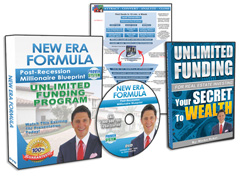

Developing a strong plan before you invest in real estate is vitally important to your investing success. It requires you to answer key questions and gives you a roadmap to keep you on track throughout the process. Developing your investment plan should always be your first step in your real estate investment journey. Here’s our quick reference guide for how to go about building a strong real estate investment plan.
- What are your investment goals?
There are two ways to go about answering this question. You can either define your goals in monetary terms or the amount of time you are willing to dedicate to your investment business. The first way you can evaluate your goals is by stating the amount of profit you expect to earn in a specified duration, for instance $10,000 in the first year. The second way you can define your goals is by asking yourself if you are willing to pursue real estate investment full-time or only as a supplement to your 9-5 job. Your answers to these questions will go a long way toward helping you choose a strategy that will fit your goals.
- What type of property are you looking at?
There are different types of investment properties, generally falling into residential or commercial categories. Additionally, each of these categories has further sub-categories to choose from. It is essential to select a property type that matches your personality type and your goals and finances.
- Where do you plan to invest?
Real estate, as they say, is about location, location, location. The location of a property tremendously influences its value. It is also a chief concern because it directly influences how you can manage the property. If you are self-managing a property that is far away, it can eat most of your profit by way of travel charges.
- How do you plan to finance the purchase?
In addition to traditional mortgage financing, there are some more creative financing options available. For example, there are several creative options such as hard money loans, seller financing, and real estate investment funds. Thus, in addition to choosing between conventional and creative financing, you will have to decide which method you will use within the respective branches.
Along with determining the source of financing, you should also decide in advance how you will pay for the debt and taxes on the property. In short, you need to be clear about your projected income and expenses after you buy the property.
- How will you make your investment convert?
This is what it all boils down to – how are you going to make money in real estate? You can make a quick profit by flipping a house, hold property for a longer period and earn through capital appreciation or make profits buying, fixing and selling properties. Each conversion method will raise unique challenges regarding how to manage the property, exit strategies, carrying costs, and other challenges. It is very important that your plan account for these types of issues.
- What if the investment fails?
As with any investing decision, you have to be prepared for the worst. You need to have an exit strategy. In fact, it is always good to have more than one exit strategy in case one of your investment assumptions turns out to be incorrect.
A good real estate investment plan need not be elaborate or long. However, it is very important that it cover the key areas, including your goals, strategies, and deadlines. It is often said that failing to plan is planning to fail. Create and follow a strong plan and you will be well on your way to a successful real estate investing future.
Request FREE Funding Kit and Discover How To Legally Bypass Banks And Gain Direct Access To "No-Credit-Required" Funding You Can Use To Achieve Your Financial Freedom... Start Now!












